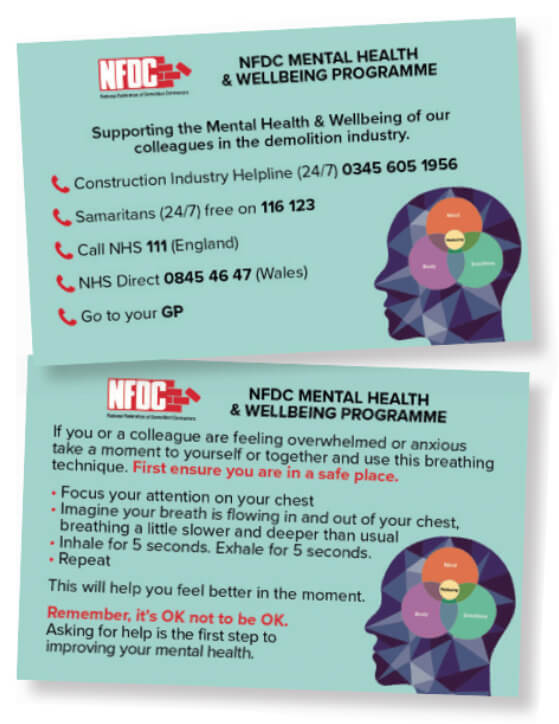Certainly Uncertain
If one thing is certain we are living in in uncertain times…..
We are living in uncertain times with no one quite sure how things will develop over the coming weeks and months or even what the future holds. Here we are going to take a look at how uncertainty affects our overall wellbeing and look at some practical steps to prevent more serious ill health as a result.
It is well documented throughout the sciences that uncertainty can cause significant levels of stress, anxiety and fear, even for the most resilient person.
When we think about stress and what causes us to be stressed, we need to remember that we are all different. However, what is clear is that uncertainly causes high level of stress and anxiety in all of us.
There have been a number of studies looking at the relationship between uncertainty and stress and what has been discovered is that we are hardwired to dislike uncertainty. Have you ever been called a ‘control freak’? I’m sure there are few people who haven’t whether it’s the simpler way you like to make sure your front door is locked at night or micro managing situations in our businesses we all want to be in control.
One such study involved volunteers playing a computer game which required them to overturn rocks, some of which had snakes hidden under them. If a snake emerged, they received an electric shock. Obviously, the volunteers wanted to avoid being shocked and so they tried to learn the behaviours of the snakes, however the researchers made sure the level of uncertainty would fluctuate but remain high. All of which was tracked using specific algorithms.
The researchers observed several different physical measures of stress in the participants and also asked them to report on how stressed they were feeling during the game. What they discovered was that all measures of stress were at their peak when uncertainly was highest. I guess we will all be thinking well isn’t this obvious? While we can, I’m sure all agree, as mentioned before that we like to be in control of our lives we are not always lucky enough to feel in control. I’m sure you will be able to recall times when you were told to ‘let things go’ or ‘don’t try to fight what you can’t control’
So why does uncertainty cause such a profound stress response? To understand this, we need to consider that stress is the body’s natural response when we feel threatened or under pressure and this response stems from are ancient ancestors. When hunter gatherers entered an unfamiliar area and didn’t know what dangers were around, uncertainty and fear ensured survival. However, this reaction to uncertainty, which hasn’t evolved, is less needed now.
The common term used to describe this reaction is the ‘fight, flight, freeze’ response, a primitive and powerful survival reaction. Basically, the fight and flight response means the body is preparing for action, either to fight the danger or threat or run away from it as fast as possible. The freeze response means the body remains as still as possible to prevent or stop any danger from happening – think of a rabbit in headlights!
From a simplistic point of view, our bodies are hardwired to keep us alive. It is therefore not surprising that in these uncertain times we are all living through, people are struggling with much greater levels of overwhelm, stress, anxiety and fear.
Being under pressure is a normal part of life but if you become overwhelmed by your stress this could become a bigger problem. Stress is directly linked to our mental health and if you struggle to manage feelings of stress you are at higher risk of developing a mental health problem such as anxiety or depression. Therefore, understanding what causes you stress and taking action to manage stress levels is a key part of looking after our wellbeing.
One way to help us all consider what stress means to us and whether we are managing our levels of stress is by using a tool known as the Stress Vulnerability Bucket (Brabben et al, 2002) or Stress Container. It enables us to acknowledge and prioritise our stressors and consider what coping strategies we can adopt.
In simple terms, imagine there’s a bucket you carry with you which slowly fills up when you experience different types of stress. Sometimes you feel strong enough to carry a lot of stress and this is when you’re at your most resilient however at other times, especially in these times of uncertainty, and the constant niggling going on for days and weeks our stress bucket can overflow.
We have already mentioned that what we individually find stressful may be different, however some of the common sources of stress, that can fill our stress bucket, include finances, family, work, health, relationships, bereavement, environmental worries, fear, loneliness and so forth. Do any of these feel familiar to our current situation?
These stressors flow into your bucket and when the bucket overflows, difficulties develop. It is also worth noting that the more stress we’re under the faster our bucket fills up.
What can we do about it?
There are many effective coping strategies that function as a valve and let stress out of your hypothetical bucket. In the previous issue of D&D I discussed the five things that the New Economics Foundation has recommended we all do to improve our wellbeing and help ‘open the valve’.
Connect, Be Active, Take Notice, Give and Keep Learning – and in these times of uncertainly we need to be working extra hard to engage in these 5 things and release our stress.
In an ideal world we would all be checking in on these 5 strategies but in reality and in our culture we are more likely to turn to the more unhelpful coping strategies. These can include drinking in excess, overworking, bottling up feelings and trying to distract ourselves with technology so for a short time we can think about something else. These eventually lead to us blocking the valve, preventing stress from flowing out, resulting in the bucket eventually overflowing.
It can be hard to manage feelings associated with stress, anxiety and fear but with some small, intentional behaviours we can lessen these natural feelings and emotions. It’s not easy but by taking some simple steps and engaging in the five things, you can ease your anxiety.
It’s hard to know at times what is right to do in these very uncertain times but there is help available.
Remember these?
 If you do nothing else…
If you do nothing else…
If you are feeling overwhelmed or anxious take a moment
- Focus your attention on your chest
- Imagine your breath is flowing in and out of your chest/heart breathing a little slower and deeper than usual
- Inhale for 5 seconds. Exhale for 5 seconds
- Repeat until you feel a little better
Remember, Its OK not to be OK
The technique above is a quick and simple way of getting us out of the turmoill even for just a few minutes helping us to recover.
NFDC’s commitment to your wellbeing continues to be a primary focus and in addition by supporting the Construction Industry Helpline provides a safe place for people to contact should they need additional help large or small.
The news so far in 2020 has been big and scary but if we look a little closer there is good.
So in these times of uncertainty I try to remember the quote from the famous American television presenter Mr Rogers who said
‘’When I was a boy and I would see scary things in the news, my mother would say to me, “Look for the helpers. You will always find people who are helping.”
Dave Price
Managing Director
Vector Equilibrium Ltd
